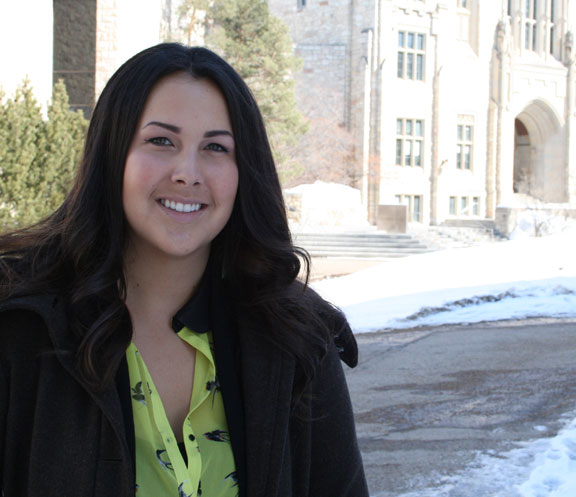Lana Garcelon tackles Aboriginal justice at home and abroad
After spending the past seven months counselling criminals in Vancouver and mediating land claims in New Zealand, Lana Garcelon is ready to apply her passion for Aboriginal justice closer to home.
By Colleen MacPherson Garcelon spent the past academic year in the Aboriginal Justice and Criminology (ABJAC) program, housed in the sociology department in the College of Arts and Science. The program—open only to students of Aboriginal descent—was established in 1991 and remains unique in North America, helping prepare students for justice-related careers through two 12-week practicums.
Garcelon spent the past academic year in the Aboriginal Justice and Criminology (ABJAC) program, housed in the sociology department in the College of Arts and Science. The program—open only to students of Aboriginal descent—was established in 1991 and remains unique in North America, helping prepare students for justice-related careers through two 12-week practicums.A member of the English River First Nation, Garcelon is one of more than 260 students who have completed the ABJAC program. While many opt to compete their practicum placements with organizations in Saskatchewan, Garcelon took it upon herself to line up internships in considerably more foreign locales.
From September to December 2012, she worked with the Native Courtworker and Counselling Association (NCCA) of British Columbia. Stationed predominantly in Vancouver's east side, Garcelon helped Aboriginal clients navigate the criminal justice system. Working one-on-one with clients was exhausting but rewarding work, Garcelon said.
"The clients were always so thankful to have our support. We tried to get to as many people as we could. We'd be in hallways and lobbies (at court houses) looking for any Aboriginal people, seeing if they needed our assistance in any way."
In January, Garcelon travelled to New Zealand for a three-month internship with the Maori Land Court. The organization oversees land-related matters for the Maori, an Indigenous Polynesian population in that country.
Working the land court's front desk and travelling the country to meet with clients, Garcelon said she was struck by the mutual respect different cultures have for one another.
"What I really liked was the widespread acceptance and understanding towards Indigenous people. The respect for their culture was amazing," she said. "It's inspirational, because you come back (to Canada) and think it's possible that those kinds of attitudes can become more common here as well."
Garcelon is graduating with a three-year BA in sociology along with an ABJAC certificate, and she plans to pursue a law degree after taking a year or two off to gain some work experience.
"I've always had a passion for Aboriginal justice and any kind of Aboriginal issues. Being a First Nations person, I've grown up seeing the results of the injustices done to Aboriginal people in Canada. My mom is a residential school survivor, so it's something I've witnessed and I want to be a part of the solution."
Kirk Sibbald is communications officer in the College of Arts and Science

